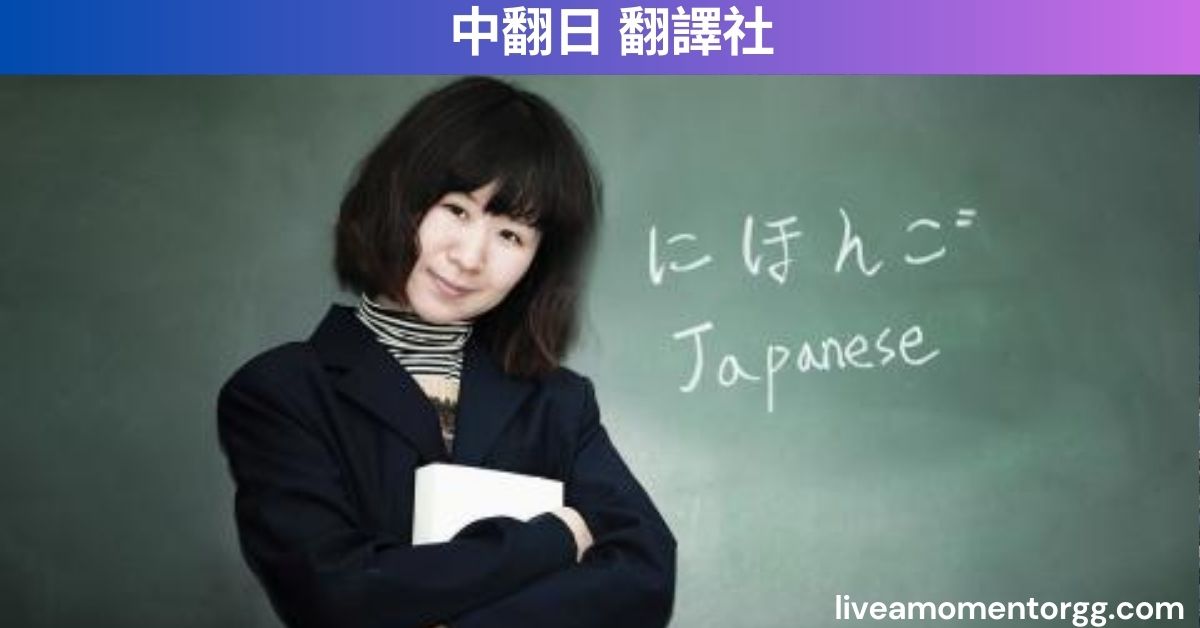中翻日 翻譯社 : A Comprehensive Guide
In today’s interconnected world, effective communication across languages is more important than ever. For businesses and individuals who need precise and culturally accurate translations from Chinese to Japanese, choosing the right translation agency (中翻日 翻譯社) is critical. This guide dives deep into what these services offer, their benefits, and why they are essential. It also provides tips for selecting the best agency and addresses common questions about translation services.
What is a 中翻日 翻譯社?
A 中翻日 翻譯社 is a specialized translation agency that focuses on converting content from Chinese to Japanese. This niche service caters to businesses, organizations, and individuals who require:
- Accurate translations: Maintaining the original meaning without errors.
- Cultural nuance: Adapting the message to fit the cultural context of the Japanese audience.
- Industry expertise: Translators proficient in fields such as legal, technical, and creative content.
With globalization accelerating business partnerships between China and Japan, these agencies play an indispensable role in facilitating seamless communication.
The Importance of Chinese-to-Japanese Translation Services
1. Trade and Business Partnerships
China and Japan are leading global economies with deeply intertwined trade relations. Businesses involved in import-export, joint ventures, or cross-border marketing depend on accurate translations for legal contracts, product descriptions, and business communication.
Also Read: 10027.5 716.25: A Comprehensive Guide
2. Cultural Sensitivity
Chinese and Japanese cultures have unique values and traditions. Literal translations may fail to capture subtle cultural meanings, leading to misinterpretations. Professional translation services ensure content aligns with cultural expectations.
3. Legal and Regulatory Compliance
Translations of legal documents, patents, and compliance paperwork must be flawless to avoid potential legal disputes. Agencies specializing in 中翻日 翻譯社 have experts well-versed in legal terminology.
4. Market Expansion
For companies aiming to enter Japanese markets, localized content helps build trust and engagement. This includes translating websites, marketing materials, and customer support resources.
Key Features of a High-Quality 中翻日 翻譯社
1. Native Expertise
Professional agencies employ native speakers of both Chinese and Japanese. This ensures translations capture not only linguistic accuracy but also cultural authenticity.

2. Specialization Across Industries
High-quality agencies have experts in various fields, including:
- Legal: Contracts, agreements, intellectual property documents.
- Medical: Patient records, pharmaceutical documentation, clinical trials.
- Technical: User manuals, product specifications, engineering materials.
- Creative: Marketing campaigns, literary works, and media content.
3. Rigorous Quality Assurance
Top agencies follow multi-step quality control processes:
- Translation by experienced linguists.
- Proofreading by language specialists.
- Final review for consistency and accuracy.
4. Fast Turnaround
Reliable agencies deliver projects within agreed timelines without compromising quality. Many offer expedited services for urgent projects.
Common Challenges in Chinese-to-Japanese Translation
1. Complex Writing Systems
Although both languages use Chinese characters (kanji), their meanings and pronunciations often differ. For instance, a character might have one interpretation in Chinese and a completely different one in Japanese.
Also Read: Simp City Forums: A Gateway to Scandalous Adventures
2. Grammar and Sentence Structure
Japanese grammar is significantly different from Chinese. Translators need to reorganize sentences while preserving the original message.
3. Cultural Adaptation
Cultural idioms, phrases, and metaphors may not translate directly. Translators must adapt these elements to ensure the message resonates with the target audience.
4. Industry-Specific Terminology
Specialized fields like medicine or engineering require precise terminology. Inaccurate translations can lead to misunderstandings or costly errors.
How to Choose the Right 中翻日 翻譯社
1. Assess Expertise
Review the agency’s portfolio and client testimonials. Ensure they have experience in your industry and can handle projects of similar scope.
2. Certifications and Standards
Look for agencies certified by reputable organizations like ISO 17100 (Translation Services Management) or ISO 9001 (Quality Management Systems). These certifications demonstrate adherence to professional standards.
3. Customized Solutions
Choose an agency that offers tailored services. Whether you need legal documents, marketing materials, or creative translations, the agency should adapt its approach to your needs.
4. Technology and Tools
Modern agencies leverage tools like Translation Memory (TM) and Computer-Assisted Translation (CAT) software to improve consistency and reduce costs for recurring projects.
5. Transparent Pricing
Request detailed quotes that outline costs for translation, editing, and additional services. Beware of agencies offering unusually low prices, as quality might be compromised.
The Role of Technology in Translation
1. Translation Memory
TM tools store previously translated phrases, ensuring consistency across projects and reducing turnaround time.
2. Machine Translation (MT)
While MT tools like AI-driven platforms can handle basic translations, they lack the nuance and cultural understanding of human translators. Professional agencies often use MT as a supplementary tool.
Also Read: How to Make Slave in Infinity Craft: A Step-by-Step Guide
3. Localization Software
Localization tools adapt content for specific markets, including date formats, currencies, and idiomatic expressions.
4. Glossary Management
Agencies create glossaries of approved terminology to maintain consistency, especially for technical or branded content.
Industries Relying on Chinese-to-Japanese Translation Services
1. E-Commerce and Retail
With the growth of online shopping, businesses need localized product descriptions, user manuals, and website content to attract Japanese customers.
2. Healthcare and Pharmaceuticals
Accurate translations of medical reports, clinical trials, and patient leaflets are critical for healthcare providers and pharmaceutical companies.
3. Legal Services
Law firms and corporations require precise translations of contracts, patents, and court documents.
4. Entertainment and Media
Film subtitles, script translations, and video game localization are vital for engaging global audiences.
5. Tourism and Hospitality
Brochures, travel guides, and booking platforms must be translated to cater to Chinese and Japanese tourists.
Tips for Successful Collaboration with a 中翻日 翻譯社
1. Define Objectives Clearly
Provide the agency with clear instructions, including:
- Target audience.
- Preferred tone and style.
- Any specific terminology or phrases to retain.
2. Provide Reference Materials
If available, share previous translations, glossaries, or style guides to help the agency align with your expectations.
3. Maintain Open Communication
Regular updates and feedback loops ensure the final product meets your needs.
4. Review and Revise
Set aside time for a thorough review of the translated content. Collaborate with the agency on revisions if necessary.
FAQs
What is the role of a 中翻日 翻譯社?
A 中翻日 翻譯社 specializes in translating Chinese content into Japanese with cultural and linguistic accuracy.
How long does a typical translation project take?
Timelines depend on the project’s complexity and length. Most agencies provide an estimated delivery date after reviewing the content.
Can these agencies handle creative content?
Yes, many agencies offer specialized services for creative translations, ensuring the tone and style align with the target audience.
What industries benefit most from Chinese-to-Japanese translation?
Key industries include e-commerce, legal, healthcare, technology, and tourism.
Are machine translations reliable for professional use?
Machine translations can be useful for basic tasks but lack the nuance and contextual understanding required for professional projects.
How do I ensure quality in translations?
Work with certified agencies, provide clear instructions, and review the final product thoroughly.
What is localization, and why is it important?
Localization adapts content to the cultural and linguistic norms of the target audience, ensuring relevance and engagement.
Conclusion
In summary, 中翻日 翻譯社 stands out as a premier solution for precise and culturally nuanced Chinese-to-Japanese translations. With expertise spanning various industries, they ensure high-quality results tailored to client needs. Whether for businesses, legal documentation, or creative projects, their commitment to accuracy, confidentiality, and cultural understanding sets them apart. By leveraging advanced technologies and experienced translators, they provide seamless communication for individuals and organizations. For those seeking professional and reliable services, 中翻日 翻譯社 remains a trusted choice, fostering connections and bridging linguistic gaps effectively. Explore their offerings today to elevate your communication strategies.






